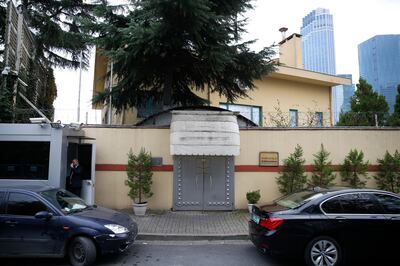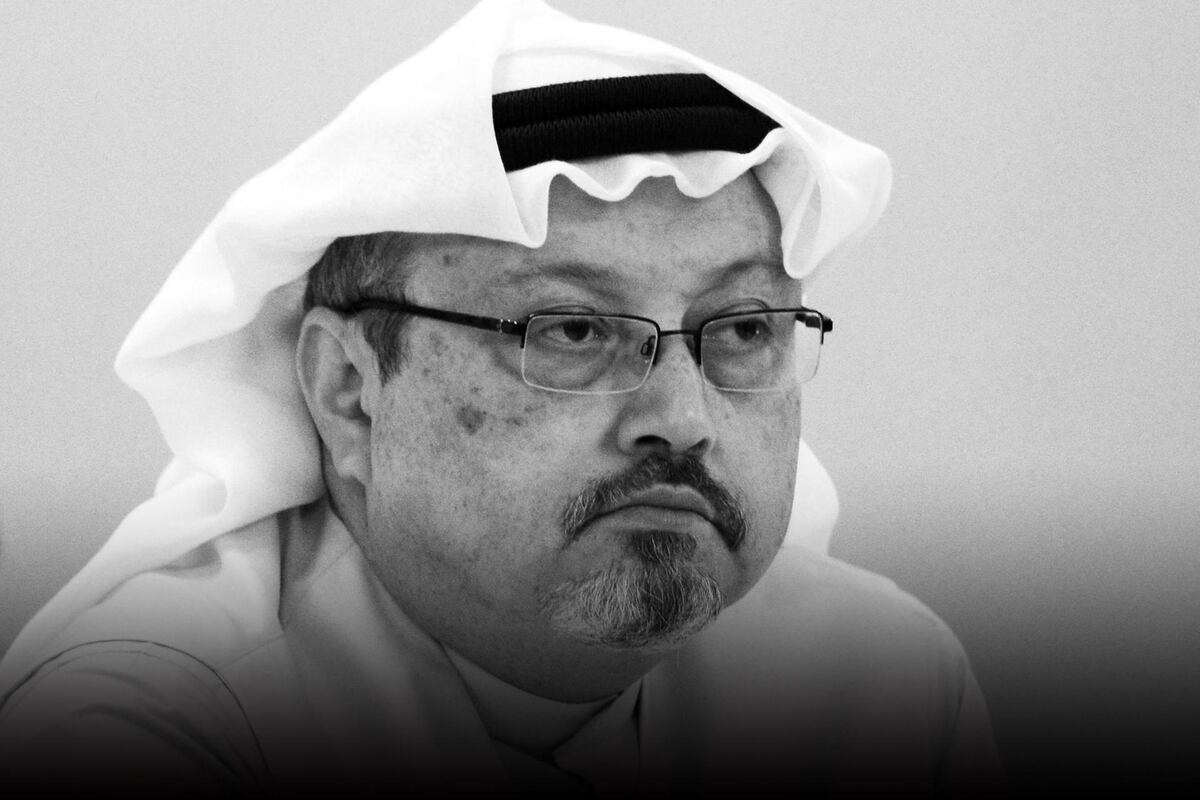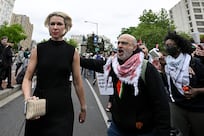Journalist Jamal Khashoggi always insisted he was not a Saudi dissident but a patriot. His self-imposed exile was a source of sorrow.
But Khashoggi's love of Saudi was not enough to keep him from a terrible death inside the kingdom's consulate in Istanbul, where he had gone to obtain documents needed for his upcoming marriage.
Eighteen days after he vanished, Saudi Arabia confirmed his death on Saturday.
Khashoggi was once close to the kingdom's ruling family, at times acting as an unofficial spokesman for Riyadh. Between 2003 and 2007 he served as media adviser to Prince Turki Al Faisal, former head of the Saudi intelligence service and, at the time, ambassador to London.
It was these connections, coupled with his journalism, that made his name.
Khashoggi began his career as a foreign correspondent covering anti-Soviet mujahideen in Afghanistan and the rise of Al Qaeda in Yemen and Sudan in the 1980s and 1990s.
_________
Read more:
Saudi Arabia inquiry finds Khashoggi died after confrontation
Leaks, misinformation complicate search for answers in Khashoggi disappearance
_________
In 1988 he wrote one of the first profiles of rising radical militant Osama Bin Laden, a man he travelled with in Afghanistan and met several times for his stories. Khashoggi wrote for the English-language Saudi Gazette, and its Arabic sister newspaper Okaz, as well as the London-based Arabic dailies Al Sharq Al Awsat and Al Hayat.
Born in Medina to a well-known family of Turkish origin, Khashoggi dedicated his youth to studying Islam and quickly became a member of the kingdom's intellectual circles.
The links to Islamist hardliners he cultivated for his stories, however, would get him into trouble. He spoke openly about being periodically barred from writing his columns and appearing on television.
"I would know [when he was in trouble] because he wouldn't answer his phone," Deb Amos, an award-winning journalist at NPR covering Saudi Arabia and the region, told The National. "Eventually the storm would pass and he would answer again."

While some questioned his liberal leanings and accused him of supporting the Muslim Brotherhood, those who knew Khashoggi say he was committed to dialogue, arguing the Arab world should engage with political Islam instead of shying away from regional and domestic issues.
Even at his most critical, Khashoggi didn’t call for an end to the Saudi monarchy or the leadership of the country. His criticism was largely levelled at the policy and practice of the government.
“[Politically] he agreed with the new Saudi reforms - but objected to the limits to dissent,” said Ms Amos, his friend of 20 years.
Ms Amos described Khashoggi as fearless and restless - with a “laser-like analysis of Saudi Arabia in a country that has no tradition of an open free media. He did it because he loved his country”.
Khashoggi held several top posts in Arab media outlets. He became editor-in-chief of Saudi-based Al Watan in 2003 before leaving the post after less than two months. He led the paper for a second time in 2007 and his tenure lasted for three years until he resigned in 2010.
In 2015 Saudi businessman Prince Al Waleed Bin Talal appointed him to run Al Arab television station in Bahrain with the aim of broadcasting no holds barred coverage of the Middle East from the Middle East. The channel was shut down within hours of launching.
_________
Read more:
Saudi officials say Jamal Khashoggi killed in altercation, as scepticism grows
Leaks, misinformation complicate search for answers in Khashoggi disappearance
UAE's Gargash warns against any attempts at 'destabilising' key ally Saudi Arabia
Mike Pompeo expects ‘complete picture’ of Khashoggi’s fate from Saudis
_________
In 2017 he moved to the US and began writing for The Washington Post. His move coincided with the rise to power of Crown Prince Mohammed bin Salman.
Randa Slim of the Middle East Institute says Khashoggi’s writing had always been his priority. “As he once put it in a conversation with friends about happiness, he was the most happy after submitting an article.”
According Ms Slim, Khashoggi left Saudi Arabia because he was censored from writing, not because he felt at the time that there was a threat to his life.
It is still unclear how Khashoggi came to die inside the Saudi consulate. Riyadh says discussions with Khashoggi "did not go as planned", leading to a "brawl" in which the writer died. Many have already voiced skepticism at this version of events.
“This appears to have been a deliberate, planned act followed by a cover-up,” US Senator Lindsey Graham tweeted on Saturday.
Congress has already triggered a mechanism for the US Treasury Department to consider human rights sanctions against Saudi Arabia and some lawmakers have vowed to block further arms sales to Riyadh, a move that President Donald Trump is likely to oppose.
Committee to Protect Journalists Executive Director Joel Simon said: "It offers no consolation to have Saudi officials confirm what the whole world already knows - Jamal Khashoggi was murdered inside the Saudi consulate in Istanbul."
Khashoggi is survived by his fiance Hatice Cengiz, and his two sons and two daughters from his previous marriage. His fiance, who described him as a martyr, tweeted on Saturday: We are separated, my beloved Jamal.






